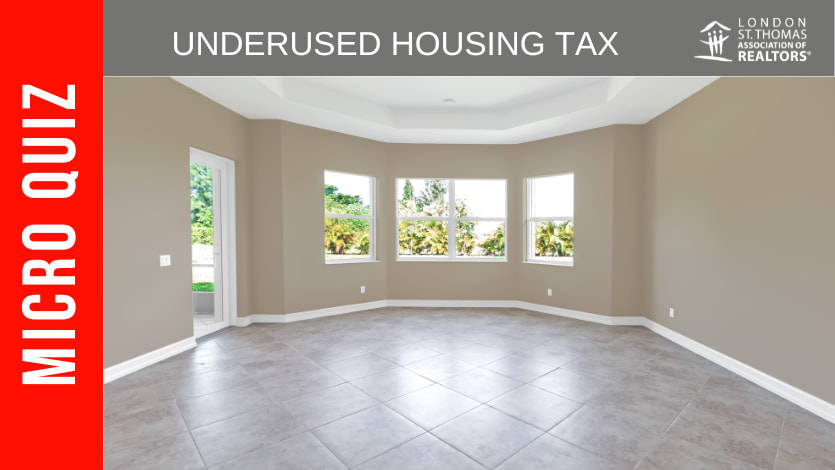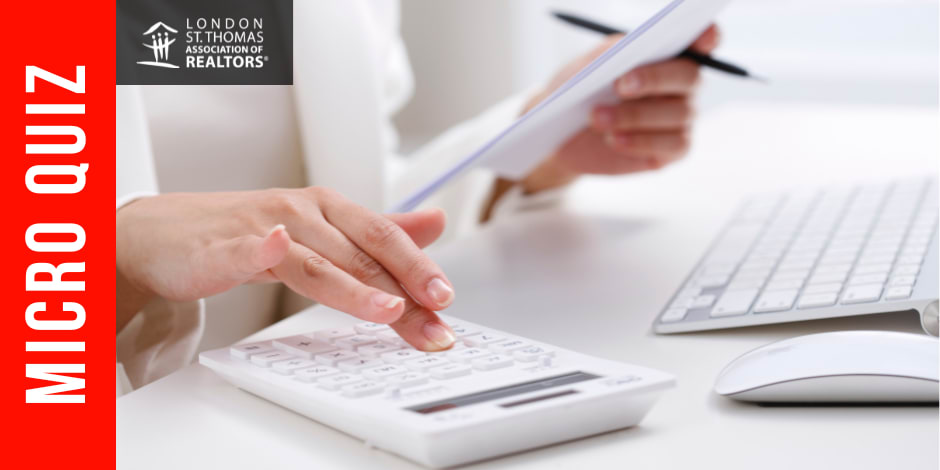UNDERUSED HOUSING TAX
On June 9, 2022, the Underused Housing Tax Act (UHTA) received Royal Assent, which means that it is now law. Under the UHTA, the annual 1% underused housing tax generally affects non-Canadian non-resident owners of vacant or underused residential property in Canada, and some Canadian owners in limited situations.
The legislation is part of the Government of Canada’s broader long-term plan to invest in building, repairing and supporting affordable housing units for Canadians.
There are significant penalties if you fail to file an Underused Housing Tax return when it is due. Affected owners who are individuals are subject to a minimum penalty of $5,000. Affected owners that are corporations are subject to a minimum penalty of $10,000.
How well do you understand the new Underused Housing Tax? Take this quick three-question quiz to find out!


On June 9, 2022, the Underused Housing Tax Act (UHTA) received Royal Assent, which means that it is now law.

If you are not an excluded owner, you are considered an affected owner and you have obligations under the Underused Housing Tax Act for your residential property in Canada. An affected owner includes, but is not limited to:
- an individual who is not a Canadian citizen or permanent resident
- an individual who is a Canadian citizen or permanent resident and who owns a residential property as a trustee of a trust (other than as a personal representative of a deceased individual)
- any person - including an individual who is a Canadian citizen or permanent resident - that owns a residential property as a partner of a partnership
- a corporation that is incorporated outside Canada
- a Canadian corporation whose shares are not listed on a Canadian stock exchange designated for Canadian income tax purposes
- a Canadian corporation without share capital
If you are an affected owner, you must file an Underused Housing Tax return for each residential property that you own in Canada on December 31. You must also pay the Underused Housing Tax, unless your ownership qualifies for an exemption for the calendar year. Even if your ownership qualifies for an exemption, you must still file an Underused Housing Tax return for the calendar year.

If your ownership of a residential property does not qualify for an exemption from the Underused Housing Tax for a calendar year, you must calculate what you owe for the calendar year.
The tax rate of the Underused Housing Tax is 1%. To calculate what you owe, multiply the value of the residential property by the 1% tax rate. Then multiply that result by your ownership percentage of the property.
Determine the value of the property
There are two ways to determine the value of a residential property. The general rule is to use its taxable value. If you want to use its fair market value instead, you must file an election with the Agency.
An affected owner electing to use the fair market value of a residential property to calculate Underused Housing Tax owing must get an appraisal of the property. The appraisal report must be prepared by an accredited, professional real estate appraiser operating at arm’s length from the owner. The intended use of the appraisal report must be to assist in the administration of the Underused Housing Tax Act.
Oops! Your knowledge of the Underused Housing Act could use some improvement! Why not review the documents on the Canadian government's website? It's the best way to stay informed and at the top of your game.
Stay tuned for next week's quiz!

Congratulations! You nailed all our questions about the new Underused Housing Act! But why not take a few more minutes to check all its details and make sure that you understand all the aspects of the new legislation?
Being knowledgeable about housing laws will position you as an expert in the industry and all your clients will perceive you as a trusted advisor.
Stay tuned for next week's quiz!
